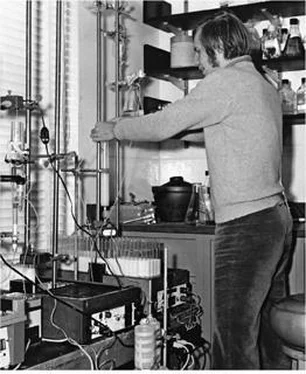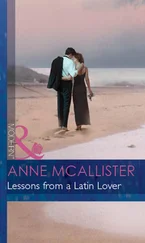James Watson - AVOID BORING PEOPLE - Lessons from a Life in Science
Здесь есть возможность читать онлайн «James Watson - AVOID BORING PEOPLE - Lessons from a Life in Science» весь текст электронной книги совершенно бесплатно (целиком полную версию без сокращений). В некоторых случаях можно слушать аудио, скачать через торрент в формате fb2 и присутствует краткое содержание. Жанр: Биографии и Мемуары. Описание произведения, (предисловие) а так же отзывы посетителей доступны на портале библиотеки ЛибКат.
- Название:AVOID BORING PEOPLE: Lessons from a Life in Science
- Автор:
- Жанр:
- Год:неизвестен
- ISBN:нет данных
- Рейтинг книги:5 / 5. Голосов: 1
-
Избранное:Добавить в избранное
- Отзывы:
-
Ваша оценка:
- 100
- 1
- 2
- 3
- 4
- 5
AVOID BORING PEOPLE: Lessons from a Life in Science: краткое содержание, описание и аннотация
Предлагаем к чтению аннотацию, описание, краткое содержание или предисловие (зависит от того, что написал сам автор книги «AVOID BORING PEOPLE: Lessons from a Life in Science»). Если вы не нашли необходимую информацию о книге — напишите в комментариях, мы постараемся отыскать её.
AVOID BORING PEOPLE: Lessons from a Life in Science — читать онлайн бесплатно полную книгу (весь текст) целиком
Ниже представлен текст книги, разбитый по страницам. Система сохранения места последней прочитанной страницы, позволяет с удобством читать онлайн бесплатно книгу «AVOID BORING PEOPLE: Lessons from a Life in Science», без необходимости каждый раз заново искать на чём Вы остановились. Поставьте закладку, и сможете в любой момент перейти на страницу, на которой закончили чтение.
Интервал:
Закладка:
We should have realized that neither Francis nor Maurice would see any advantage in giving permission to publish material that they felt not only failed to serve the public interest but also harmed them. Too soon their response came through a high-powered attorney, who wrote President Pusey of his clients’ contention that they were libeled by my manuscript. They employed the same lawyer that Jacqueline Kennedy had unsuccessfully used to block publication of The Death of a President, William Manchester's book on her husband's assassination. Both Tom Wilson and I noted that this New York hired gun was careful not to specify that he considered my book libelous. Nevertheless, we feared that President Pusey would feel himself involved in something untoward, and Tom later unilaterally decided that HUP would move ahead only with the Harvard president's approval.
I also should have realized that Peter Pauling would feel a filial duty to send my manuscript to his father. After reading it, Linus fired off an angry letter to Tom Wilson calling Base Pairs “a disgraceful example of malevolence and egocentricity” He wrote demanding that I remove the lines “Linus's screwy chemistry” and “Linus looking like an ass.” These were phrases I knew good taste would lead me to delete before the manuscript went to the printer. But since they were true, I was loath to remove them before absolutely necessary. In a similar vein, I never should have sent out a manuscript saying that Francis had never been a member of any college because he was thought to pinch other people's ideas. By this I only intended to convey the reason why King's, to their great loss, had not made Francis a fellow despite his unquestioned brilliance.Already Tom Wilson had assigned his editor Joyce Leibowitz the task of working with me to make the manuscript less objectionable to the story's principals, at the same time preserving its aim to tell what really happened. Joyce had the wit to see that my story would benefit from an epilogue saying that my descriptions of Rosalind Franklin did not do justice to her scientific accomplishments while at King's. Also helping me was the bright literature major Libby Aldrich, who, like Dolly Garter, had taken George Wald's natural science biology course. Libby then was writing her senior thesis on Sylvia Plath, whom I remembered scurrying along King's Parade in Cambridge in the mid-1950s.
Soon after receiving the Base Pairs manuscript, John Kendrew took it to J. D. Bernal, who wrote him saying, “I could not put it down…. Considered as a novel of the history of science as it should be written, it is unequaled. It is as exciting as Martin Arrowsmith.” While asserting his opinion that I was unfair to the contributions of Rosalind Franklin and noting that I did not even mention the work of Sven Furberg, both from Bernal's lab, he offered the following comment: “Watson and Crick did a magnificent job, but in the process were forced to make enormous mistakes which they had the skill to correct in time. The whole thing is a disgraceful exposé of the stupidity of great scientists’ discoveries. My verdict would be the lines of Hilaire Belloc:
And is it True? It is not True.And if it were it wouldn't do.”
I was also encouraged by a letter from the Hungarian-born imrau-nologist George Klein. During his late fall visit to Harvard Medical School, my father prepared Sunday lunch at 10½ Appian Way for the three of us. George left with a copy of Base Pairs to read on the plane back to Stockholm. From the Karolinska Institutet he sent a letter saying that I had written “an unparalleled description of the excitements, the frustration, the greatness, and the smallness of creative research students…. You should expect a hostile backlash from most scientists; you should not try to soften your book, have it printed as it is or not at all.”
Over three winter months, I continually made minor changes to correct misstatements of fact or personal intent, particularly as enlightened by Francis and Sir Lawrence Bragg. Again using Honest Jim as the title, I worried that Francis and Maurice's objections would lead Sir Lawrence to withdraw his foreword, and I wrote to him that I would understand if he saw fit to do so. On April 19 he replied that he would be very sorry if it came to that, but that he also wished to state categorically that his contribution was contingent on my making certain changes, in particular, one correcting my misstatement that Perutz and Kendrew told him they would leave Cavendish if Crick was fired. In conclusion, he “wished the book every success.” At the same time, John Maddox, the editor of Nature, found nothing libelous in the newest Honest Jim. In fact, he believed it to be much less dodgy than earlier reported to him: “In other words, I would like to see it published.” But when that occurs, he said, “you will have to barricade yourself in for six months or so.”
Both Maurice and Francis continued to oppose Honest Jim in every way possible. Ina letter, Maurice reminded me of having written when I sent him my first draft, “You might think you have reason to shoot me.” Now Maurice worried that “his letter would make me want to shoot him.” In it he suggested that I abandon any thought of publishing my book intact but instead have its science passages incorporated in the forthcoming book of historian Robert Olby on the double helix.
Contributions emerging from tape recordings of himself, Francis, Erwin Chargaff, and Pauling were also expected to appear in Olby's book.Francis's five-page letter of April 13 started out saying that the new version was a little better but his basic objections were the same: “Your book is not good history;” “You did not document your assertions (with appropriate references)… displaying the history of science as gossip;” “Your view of the history of science is found in the lower class of women's magazines;” “If instead considered as autobiography, it is misleading and in bad taste;” “The fact a man is well known does not excuse his friends from respecting his privacy while he is alive;” “The only exception should be when private matters are of direct public concern like with Mrs. Simpson and King Edward;” “Your book is vulgar popularization which is indefensible.” On the next-to-last page, Francis raised the stakes. A psychiatrist to whom he gave the manuscript reportedly said, “The book could only be made by a man who hates women.” Another shrink concluded that I loved my sister to excess, “a fact much discussed by your friends while you were working in Cambridge, but so far they have refrained from writing about.” On the last page, Francis noted copies of his letter were being sent to, among others, Bragg, Pauling, and Pusey
A month later, Nathan Pusey told Harvard University Press that it could not publish my book, saying, “Harvard did not want to be involved in fights between scientists.” Libel considerations were likely not involved but no foundation for such objections seems to have been established in any case. Some months before, at a party dominated by Harvard Law students, a recent law school graduate told me that he was reading my manuscript for Ropes and Grey, Harvard's Boston lawyers, explaining that he had no past experience with libel matters. Once I learned that HUP was out, Joyce Leibowitz suggested I retain as my personal counsel the New York lawyer Ephraim London. A greatly respected legal scholar, Eph had successfully argued several freedom-of-speech cases before the United States Supreme Court. A tall, thin man with connections to publishing going back several decades, Eph had been Simon and Schuster's house counsel. Upon reading my manuscript, he said it contained no libel.
Читать дальшеИнтервал:
Закладка:
Похожие книги на «AVOID BORING PEOPLE: Lessons from a Life in Science»
Представляем Вашему вниманию похожие книги на «AVOID BORING PEOPLE: Lessons from a Life in Science» списком для выбора. Мы отобрали схожую по названию и смыслу литературу в надежде предоставить читателям больше вариантов отыскать новые, интересные, ещё непрочитанные произведения.
Обсуждение, отзывы о книге «AVOID BORING PEOPLE: Lessons from a Life in Science» и просто собственные мнения читателей. Оставьте ваши комментарии, напишите, что Вы думаете о произведении, его смысле или главных героях. Укажите что конкретно понравилось, а что нет, и почему Вы так считаете.












